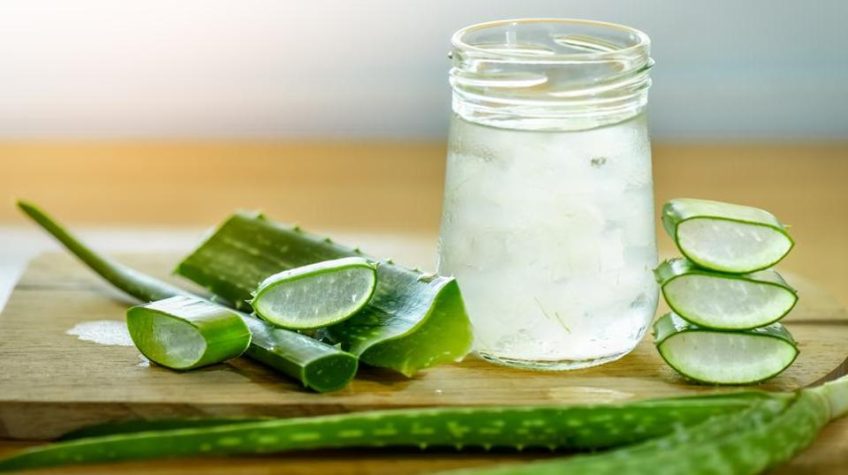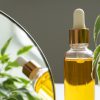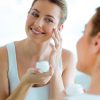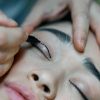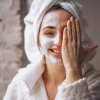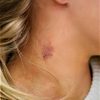Every time you skimp on sunscreen lotion, you end up with sunburn to at least some extent. Basically, you cannot completely ignore the sun damage on your skin, even when you use sunscreen. So what do you think can effectively be your rescue to sunburn or tan issues, without any side effects? How many home remedies have tried so far? Are you happy with the results? Or did you go for cosmetic surgery instead?
It is a crucial thought right before your wedding, which is to look beautiful and fresh on your special day. You cannot simply restrict yourself at home, just to stay away from UV damage. So what should you do to protect your skin, or revert your healthy skin back in no time?
Well, here comes your solution. Aloe vera, or what you may call a cactus-like plant, is extremely beneficial with medicinal and healing properties. If you want to soothe your skin from the scorching heat of the sun, simply apply some aloe vera gel. You will definitely see the results within a few minutes. During sunburn, your skin turns red and you get the feel of your outer epidermal corroding from the heat. Aloe vera quickly heals your burning skin like a superhero and smoothens your skin with a moisturizing effect.
What makes aloe vera a medicinal plant?
Aloe vera contains various vitamins and minerals, including vitamins E and C that are very important for your skin health. The leaves of aloe vera are triangular in shape, made up of three different layers. The inmost layer has a composition of water (99 percent) and active phytochemicals (75 percent). This layer is what you call the aloe vera gel, which you can easily scoop out using a spoon and store.
There are multiple benefits that aloe vera offers, including cell regenerative, antifungal, antiviral, and antioxidant properties. So if you have any injury or infection on your skin, you can topically apply aloe gel on that area. Another way to use aloe vera gel is oral consumption. You can mix the aloe pulp in any fruit juice, tea, water or any kind of beverage and directly drink it. Drinking or topical application of aloe gel will render you the same results, without a doubt.
Aloe vera is a ‘wonder plant’ that comes with-
- innumerable herbal properties
- cosmetics
- used as food supplements
- directly in foods for flavoring (as approved by the FDA)
Composition of aloe vera:
- Vitamins- vitamin A (beta carotene), vitamin C, vitamin E. All of these vitamins act as antioxidants. Other vitamins include B12, choline and folic acid. (acecharter.org)
- Enzymes- aloe vera contains eight different enzymes namely alkaline phosphatase, lipase, bradykinase, catalase, aliases, peroxidase, carboxypeptidase, and cellulase. Bradykinase is the enzyme responsible for reducing inflammation on your skin when you apply the gel topically. The rest of the enzymes helps in breaking down fats and sugars.
- Minerals- calcium, selenium, iron, magnesium, potassium, zinc, manganese, chromium, sodium and copper. Few of these minerals function as antioxidants, while others are involved in regulating your overall metabolic rate.
- Sugars- monosaccharides include fructose, mannose-6-phosphate, and glucose, while polysaccharides include polymannose or glucomannan. A glycoprotein is also present within the inner layer of the aloe vera leaf called alprogen. This compound is responsible for having anti-allergic effects on your skin. Another compound called C-glucosyl chromone has anti-inflammatory properties.
- Anthraquinones- there are 12 anthraquinones present in one aloe vera plant, which are phenolic compounds or laxatives. Among them, emodin and aloin have antibacterial, analgesic and antiviral effects.
- Fatty acids- you will find 4 steroidal compounds in total namely lupeol, cholesterol, beta-sitosterol, and campesterol. All of them have anti-inflammatory, antiviral and antibacterial properties.
- Hormones- gibberellins and auxins help you with healing effects, as well as anti-inflammatory action.
What magic can aloe vera do on your skin?
- Soothes sunburn
Aloe vera is composed of a variety of sugars, including monosaccharides and polysaccharides. One of the polysaccharides called glucomannan helps in cell regeneration and cell repair. When you apply aloe vera gel on the sites of skin burn, it peels of damaged skin or repairs them. In the damaged places, the polysaccharide ensures new growth of healthy cells. There is a pain reliever or analgesic called carboxypeptidase present in the gel that gives you a soothing effect.
- Gets rid of skin irritation
If you are suffering from skin diseases like psoriasis, lichen planus, or eczema, aloe vera therapy is the answer. It contains phytochemicals like acemannan that reduces inflammation, by triggering specific enzymatic pathways. If you have contact dermatitis, aloe vera gel can help you with its anti-allergic properties.
- Fights acne and acne marks
Acne, blackheads, or pimples are a great threat to your skin, especially when you are getting married soon. These unnecessary marks on your face definitely take off the luster and freshness. You get acne and blackheads when your skin pores get clogged with oils and dirt. To unclog them, use aloe vera and get rid of acne in no time. What’s a bonus for you? Aloe vera imparts anti-inflammatory effects on the affected areas of your face and brings back your radiance.
- Treats infections and cold sores
If you are suffering immense pain on your skin due to an infection, call for aloe help! Aloe vera contains salicylic acid that has antifungal, antiviral and antibacterial properties to speed up your healing process. It triggers the production of antibodies in your bloodstream that will uplift your immune system, and fight pathogenic invasions.
- Removes dark spots
You may often notice dark patches on your skin due to UV-mediated hyperpigmentation on overexposure to the sun. Such effects may lead to skin discoloration and sunburn. Aloe vera get contains antioxidants like glutathione peroxide that fades dark patches and rejuvenates your skin.
Final thoughts
Aloe vera triggers fibroblast activity in your skin, which promotes greater production of collagen and elastic fibers. Zinc seals your skin pores and prevents wrinkle formation. Altogether, they bring down signs of aging.

